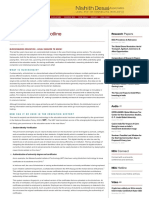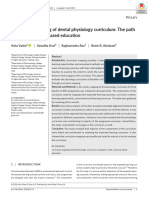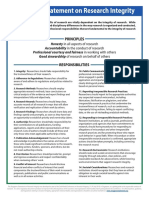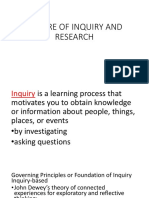0% found this document useful (0 votes)
38 views4 pagesBlockchain and AI For Secure Exam Distribution
This paper discusses the integration of blockchain and AI technologies to enhance the security and integrity of national examinations, addressing issues like paper leaks and impersonation. A survey of 300 education professionals and students reveals strong support for these technologies, with 71% believing blockchain can prevent leaks and 76% affirming AI can improve proctoring. The study emphasizes the need for public education and policy implementation to address privacy concerns and complexity in adopting these solutions.
Uploaded by
prasad alahitCopyright
© © All Rights Reserved
We take content rights seriously. If you suspect this is your content, claim it here.
Available Formats
Download as DOCX, PDF, TXT or read online on Scribd
0% found this document useful (0 votes)
38 views4 pagesBlockchain and AI For Secure Exam Distribution
This paper discusses the integration of blockchain and AI technologies to enhance the security and integrity of national examinations, addressing issues like paper leaks and impersonation. A survey of 300 education professionals and students reveals strong support for these technologies, with 71% believing blockchain can prevent leaks and 76% affirming AI can improve proctoring. The study emphasizes the need for public education and policy implementation to address privacy concerns and complexity in adopting these solutions.
Uploaded by
prasad alahitCopyright
© © All Rights Reserved
We take content rights seriously. If you suspect this is your content, claim it here.
Available Formats
Download as DOCX, PDF, TXT or read online on Scribd
/ 4






















































































